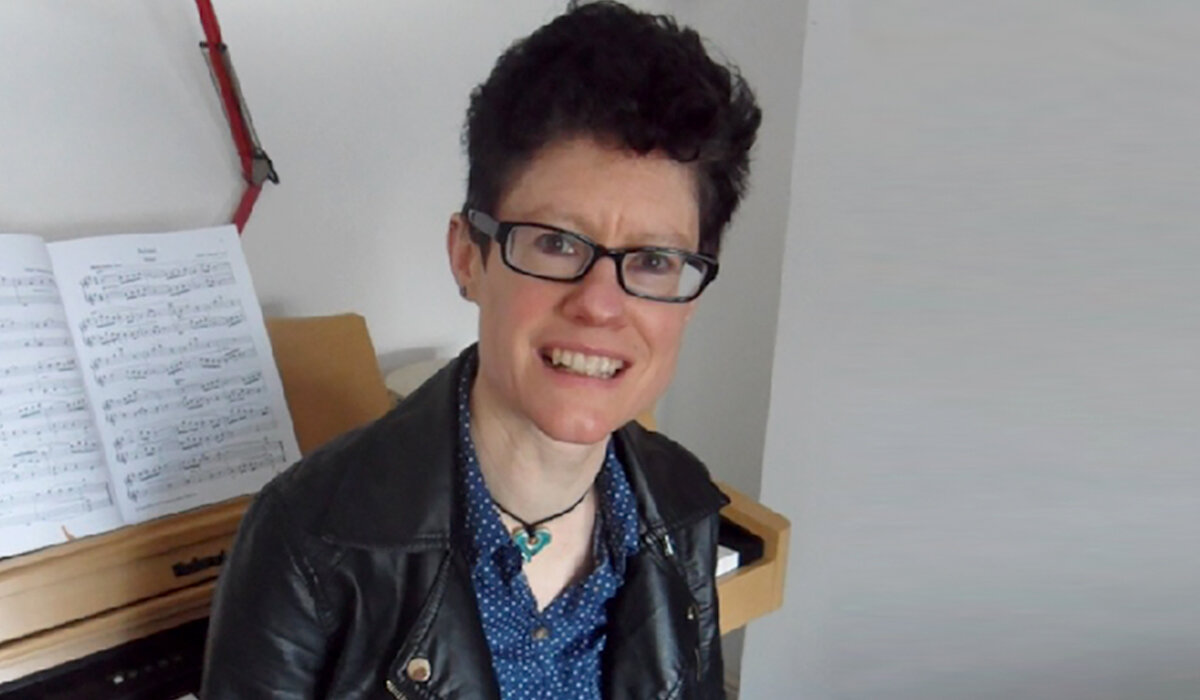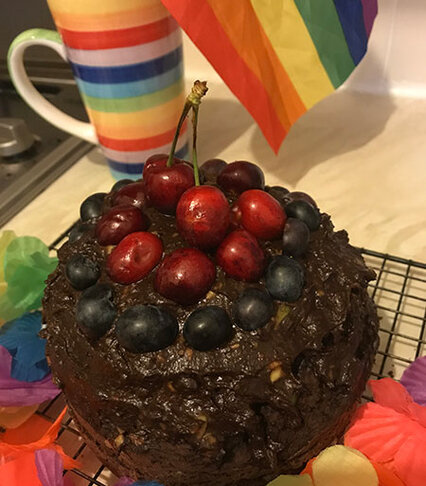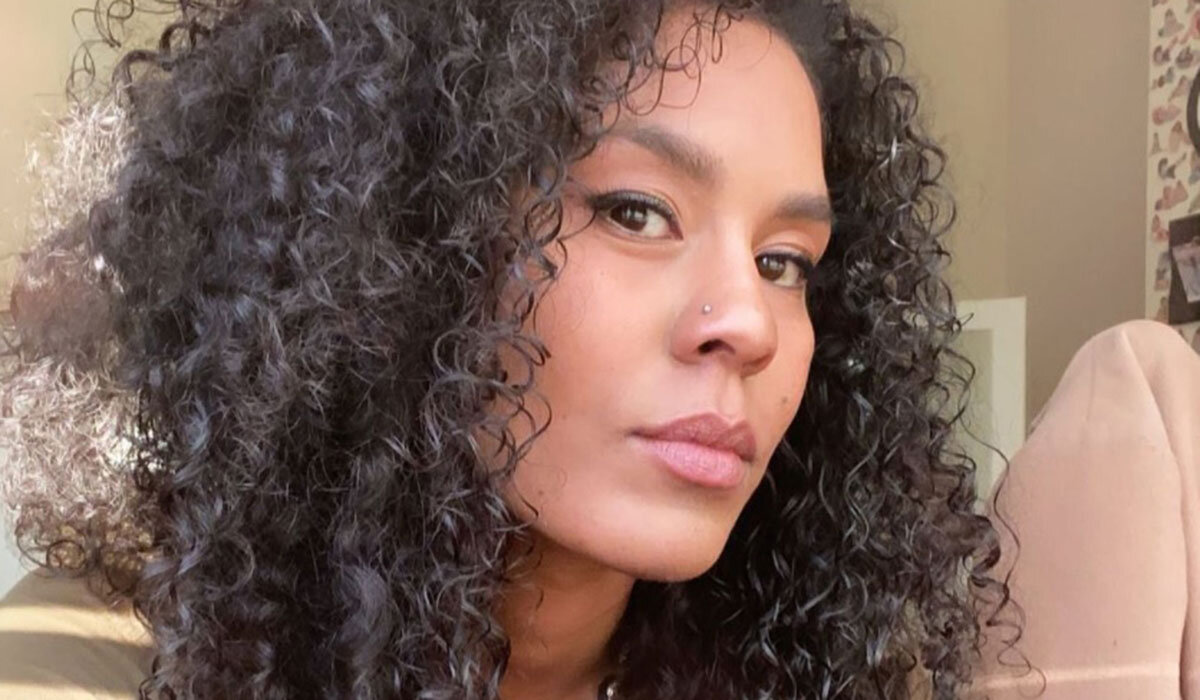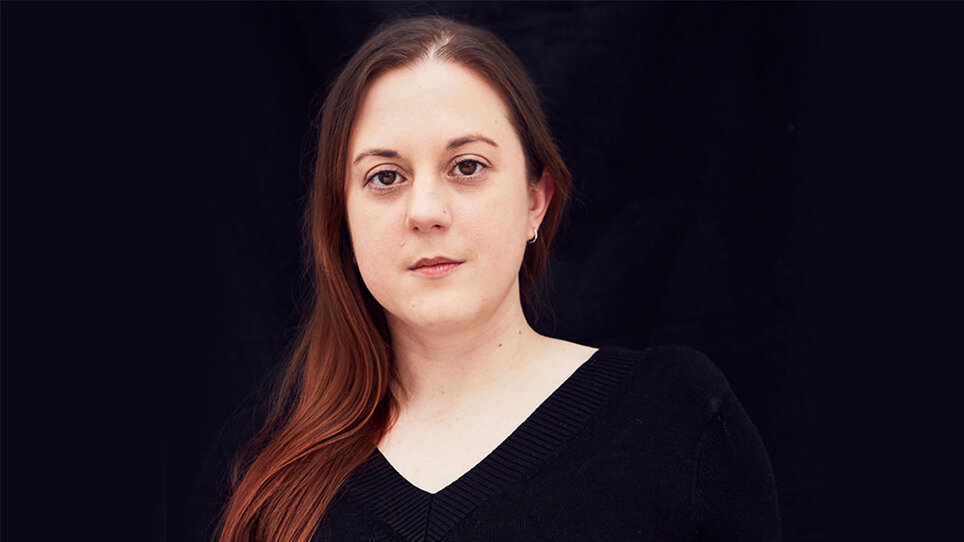
"It's great that Pride events exist, as they help LGBTQ+ people see they are not alone."
Madge Woollard
- on celebrating Pride as an LGBTQ+ autistic person
Celebrating Pride Month with...Madge Woollard
To celebrate Pride Month in the UK, we’re interviewing autistic members of the LGBTQ+ community.
Next, we meet Madge Woollard, an autistic pianist. Her wife, Jo, is also autistic. Madge chats to us about her autism diagnosis, navigating LGBTQ+ spaces as an autistic person, and stepping up to the plate to bake a Pride-themed cake! You can admire Madge's creation below.
When were you diagnosed as autistic and what made you seek a diagnosis?
I was diagnosed in 2016 at the age of 44, so pretty late. My wife suggested that I might be autistic, and my nephew was diagnosed around the same time, when he was eight-years-old. I suspect I have several family members who could be autistic as well, but are not diagnosed.
What is being autistic like for you?
Well, it’s normal for me because it’s all I’ve ever known! It was harder when I was a child. For a long time, I didn’t really have any friends. It was only when I was in my 20s that I started to make friends. I could’ve done with some help at school with my social skills. Autism wasn’t really ‘a thing’ at that time, apart from those who had very high support needs or co-occurring conditions. I was doing alright academically, so nobody really saw that I was struggling socially or that I didn’t have any friends. A lot of schools didn’t seem too bothered about that sort of thing in the 1980s.
In school, I didn’t feel I was similar to my peer group at all. The things they were interested in just didn’t interest me. I just wanted to get on with my work, get my exams done and go to university – which I did. I did a music degree at Cambridge, and I’m now a piano teacher. I didn’t want to go out partying, drinking and socialising in the same way that my class mates did. I felt like an alien among them, which I think is similar to how a lot of autistic people feel.
What is being an autistic person in the LGBTQ+ community like for you?
I can’t say I’m really a big part of the community to be honest. I do a few things online. There’s a Facebook group called Diva community that I’m part of. It’s based around Diva magazine, which I read. Diva magazine is the leading European magazine for LGBTQ+ women and non-binary people. It’s been going for quite a while now. They started an online community during the March 2020 lockdown, which now has thousands of members.
The trans community in particular is really interesting. Although we are not transgender ourselves, my wife and I both identify as non-binary (though we are happy using the pronouns ‘she/her’). We find we get on particularly well with transgender people, and those of different genders. I think there is a huge overlap with autistic people and transgender people.
There are also a lot of non-binary autistic people around. I think this is because a lot of us don’t really fit in socially, and this extends to ideas around gender. I find autistic people to be very non-judgemental as well. I’ve never met an autistic person who has said, ‘you can’t be non-binary’ or ‘there shouldn’t be trans people’.
You mentioned that your wife is also autistic. Would you be able to talk a bit about that?
Yes, she only got diagnosed in 2019. She was always the one who suggested that I might be autistic (before my diagnosis). In fact, I think we get on so well because we’re both autistic.
She got her diagnosis privately, whereas mine was done through the NHS, so our experiences of the process were a bit different. We both had positive experiences though, as the people assessing us asked the right questions and treated us well.
Do you think being autistic influences your approach to your marriage?
Yes. We’re very honest with each other. Because we are both autistic, we communicate well together. I think two autistic people can often communicate with each other better than an autistic person and a neurotypical person. People say that autistic people are not good at communicating, but between ourselves we are.
Do you face any challenges, being an autistic person in the LGBTQ+ community?
I do feel excluded from LGBTQ+ spaces at times, because they often revolve around drinking, going out, and staying up all night, which is really not what I want to do. I wish there were quieter spaces for LGBTQ+ people that didn’t involve so much drinking and staying out late into the evening. I think there could be more events in the day – just having coffee or something like that.
I’ve been to a few Pride events, but I really don’t feel comfortable there to be honest. I just find them too noisy and too crowded. My wife and I have actually performed at Sheffield Pride a couple of times. I play piano and she plays bass guitar. We weren’t on the main stage, just in a little tent at the back. I don’t think anyone could hear us, as it was just so loud everywhere else! It was a good experience though.
Despite this, I think it’s really great that Pride events exist, as they help people who are coming out as LGBTQ+ to see that they are not alone. I think the origins of Pride should be taught in schools. It would be great if everyone in every secondary school was taught a bit about LGBTQ+ history.
"I think it’s really great that Pride events exist, as they help people who are coming out as LGBTQ+ to see that they are not alone."
How did you celebrate Pride last year?
Last year I took part in a virtual baking competition, through the Diva community Facebook group. This involved baking a cake at home and taking a photo of it. The cakes were then judged according to the photos. Everyone was baking rainbow cakes. It was brilliant! I made a chocolate cake with cherries on it, and put rainbow flags around it. I didn’t win, but it was good fun.

Madge's Pride cake
Read more Pride stories

"There are lots of ways to celebrate Pride. It doesn't have to be a parade full of people."
Char Bailey
- on celebrating Pride Month in her own way
Read more

"At my work, we celebrated Pride online. It was so much fun, and I felt so included."
Fuchsia Carter
- on Pride as an autistic woman and a wheelchair user
Read more

The Spectrum magazine
Explore one of the UK's largest collections of autistic art, poetry, and prose. The Spectrum magazine is created by and for autistic people, and is available both online and in print.
Read the Spectrum





You are not alone
Join the community
Our online community is a place for autistic people and their families to meet like-minded people and share their experiences.
Join today